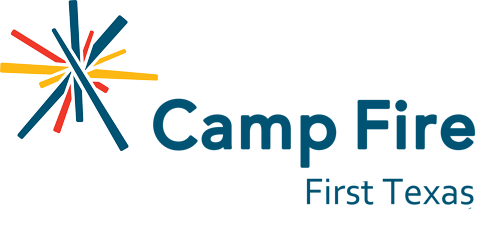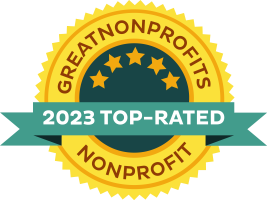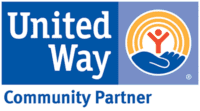
“Everyone knows that not all change is good or even necessary. But in a world that is constantly changing, it is to our advantage to learn how to adapt and enjoy something better.” –Kenneth H. Blanchard
I’ve been thinking about change a lot over the past few weeks. The weekend of August 19th I went to Victoria, Texas for my 48th high school reunion. What a great place to witness change—in the faces and bodies of “old” friends, but not in their hearts and spirits!
The next weekend, Hurricane Harvey dumped 52 inches of rain in Victoria and the Gulf Coast—Rockport and Port Aransas, where I spent many happy days of my childhood with family and friends. That area has now drastically changed, but not for the first time after a hurricane. I know that third coast folks are resilient. They have a growth mindset.
I spent the last week of August in the Pacific Northwest with my sisters and my daughter. On Tuesday, August 29th, we had lunch at Skamania Lodge in Stephenson County, Washington. This was our view at lunch:
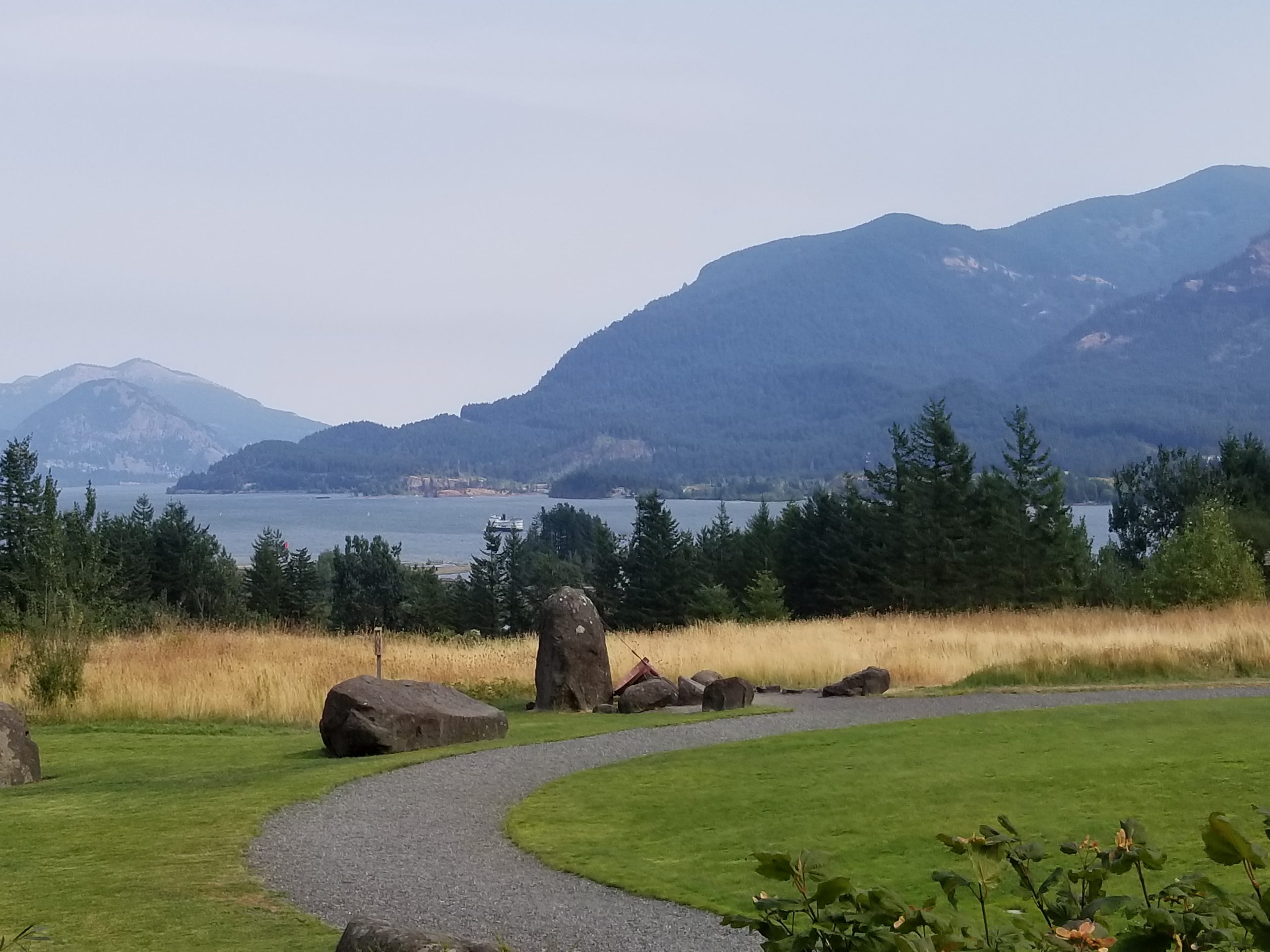
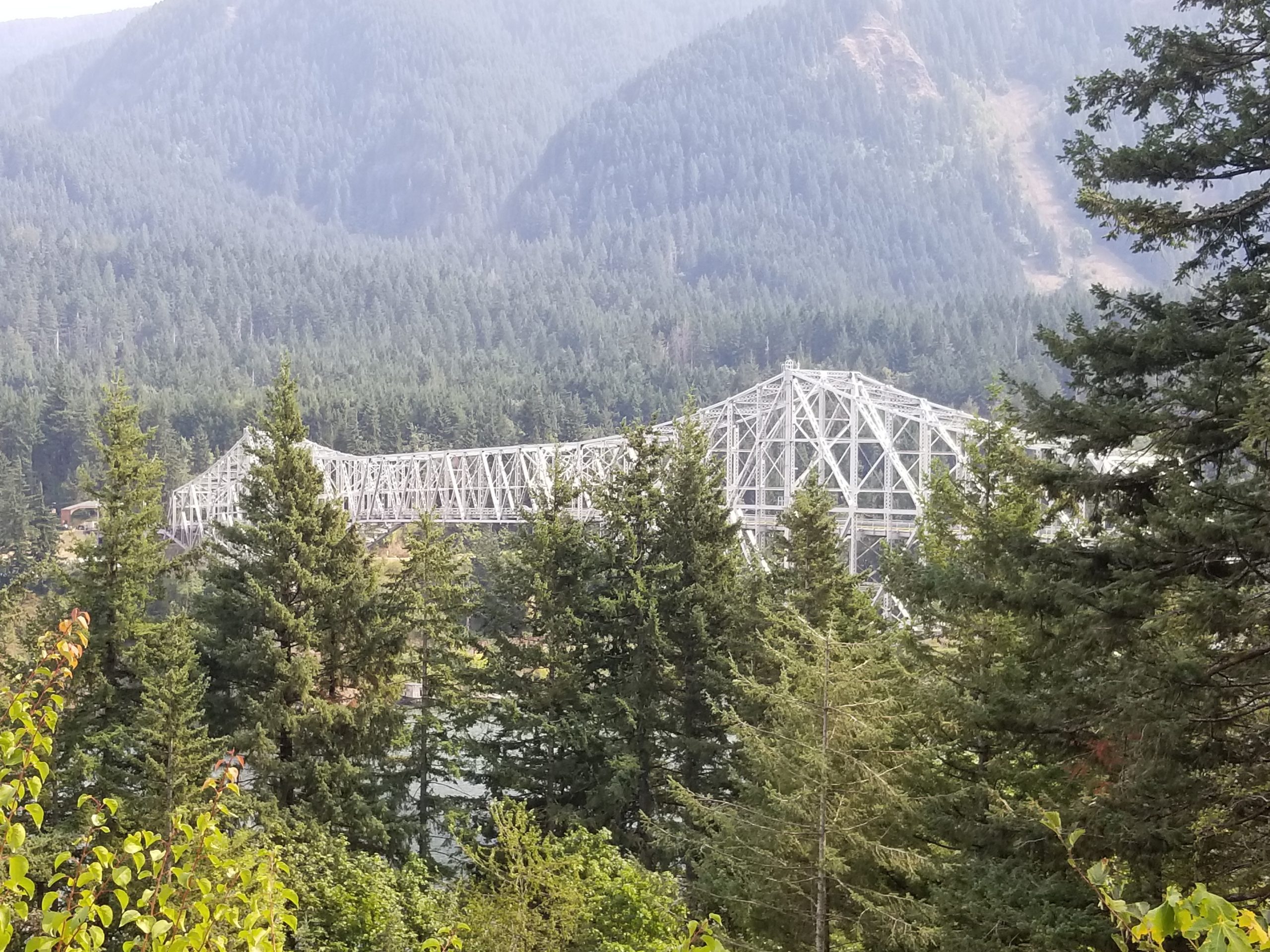
We flew home on Sunday, September 3rd. That night my sister sent me this picture of the exact same place. It will be years, perhaps centuries before the land is restored to its former (last week’s) beauty.
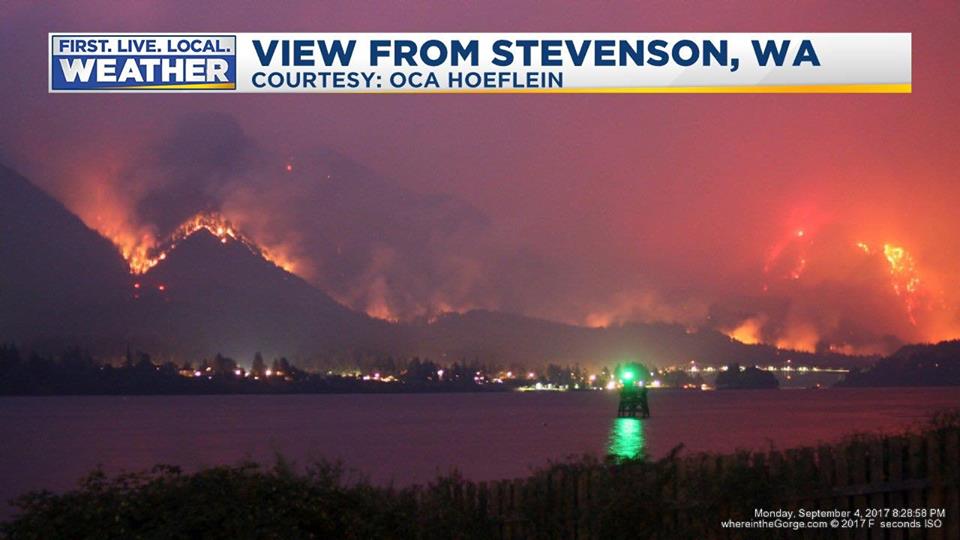
The Pacific Northwest is normally cool, wet, and not prone to wildfires. But the Western U.S. has been especially hard hit by climate change, warming almost twice as fast as the global average, as Pacific Standard reported earlier this year. Large fires in the region have increased by 1,000 percent since 1960.
Writing in Pacific Standard in April, Bob Berwyn reported on one research team’s proposed solution: Stop building homes near forests, where they’re more likely to burn than in more urban areas; stop preventative vegetation thinning, which the team argues doesn’t work; and allow fires to burn in uninhabited areas, to help plants adapt to a future in which climate change is expected to lead to more wildfires. That last bit of advice means that residents of the Pacific Northwest must accept that their iconic emerald landscape will look very different in the future. They’re going to have to embrace a growth mindset.
Well, that’s a tall order! What is a growth mindset? Growth mindset is the foundation of Thriveology, the framework of all Camp Fire programming—thriving no matter what life brings you. Thriving is deeper than happiness. It is wrapped in meaning and purpose, full of gratitude, and always connected to the world around you. Leaders of Camp Fire programs are empowered with the tools and resources to cultivate a growth mindset culture in the children and youth in their care.
More than 30 years ago, Carol Dweck and her colleagues became interested in students’ attitudes about failure. They noticed that some students rebounded while other students seemed devastated by even the smallest setbacks. After studying the behavior of thousands of children, Dr. Dweck coined the terms “fixed mindset” and “growth mindset” to describe the underlying beliefs people have about learning and intelligence. When students believe they can get smarter, they understand that effort makes them stronger. Therefore, they put in extra time and effort, and that leads to higher achievement.
You can guarantee life will hand you lumps—not always devastating fire and floods—but there will be roadblocks and tough times. How will you respond? Will you believe “this just isn’t meant to be?” Or will you believe something else is possible? Let’s learn how to thrive better together, and discuss some strategies for dealing with those life challenges.
Lee Baucum, Ph.D. has recorded a series of podcasts on developing a thriving, growth mindset. It’s not an either/or position, it’s a continuum. Expect to learn by failing, then keep learning. Here are some steps to move us along the growth mindset continuum:
- Get started. Harry Truman said, “Imperfect action trumps perfect inaction.”
- Try something new. Confidence builds competence, in a process loop. You’ll feel uncomfortable until you feel comfortable.
- Be able to say, “I am learning.” You don’t always have to be the smartest person in the room. Surround yourself with people from whom you can learn. There may be options that you don’t know about (yet). “In the beginner’s mind, there are many possibilities. In an expert’s, there are few.” (Zen saying)
- Embrace struggle. Struggle defines our ability to grow. When you are comfortable, you don’t reach beyond for a challenge. Challenge yourself to find a place of deep meaning and purpose in what you are doing. We’re not meant to struggle all the time. Growth mindset is built like muscle: struggle, rest, re-build.
- Redefine failure as a lesson learned—a new starting place for the next step. Failure is not getting knocked down—it’s not getting up.
- Embrace life evolution. It’s not possible to know if a solution will work until it’s tried out. Life is an experience in trial and error—a life evolution as we adapt to life by experimentation.
With these strategies, you CAN face life, even when life seems unfair and challenging.
Dorothy Wing serves as the council’s grants manager. Dorothy brings more than 30 years of experience to Camp Fire from previous positions centered in government affairs, community relations, government contracting, project management, proposal development and grant writing. Dorothy is most proud of her work with Camp Fire First Texas on the Capital Campaign for Camp El Tesoro. The campaign concluded in fall 2015 and raised a total of $10.9 million to renovate and upgrade Camp El Tesoro facilities. She holds a Bachelor of Arts in liberal arts from the University of Texas at Austin.
